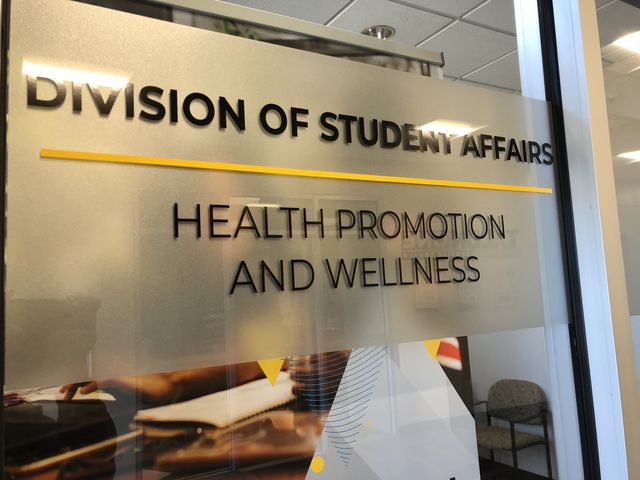The managing global news editor for The New York Times, Michael Slackman, visited Kennesaw State University Thursday, Sept. 24 as part of the American Democracy Project.
Slackman, who has been with The New York Times since 2003, spoke to a crowd of students about the significance of democracy in America.
“I only really learned the value and essence of democracy when I went abroad as a foreign correspondent,” Slackman said. He spent eight years in the Middle East and as well as several other countries around the world.
In his speech, he stressed the importance of democracy and how elected leaders differ from leaders of other nations.
“In countries without democracy, there’s no expectation that the government will serve, or even that it will be held accountable.”
He told the story of a third-class train that was travelling from Cairo to Luxor when it crashed and around 300 people perished in the fires. He arrived on the scene and questioned the governor of Giza, who was present.
“He said, ‘Why do you care? It’s just poor people.’ His job was not to provide comfort, to hold anyone accountable, to figure out what happened,” Slackman said. The lack of response to this from the public was even more shocking to him.
“The people in the neighborhood and the people in the surrounding area weren’t outraged because they had no expectation that their government would ever care about them.”
Slackman noted that the three values upon which democracy is entirely dependent are diversity, tolerance, and compromise.
“You can’t have democracy without a diversity of views, without a tolerance for opposing views, and without a willingness to compromise with people you don’t agree with,” he said.
In his opinion, it is the First Amendment that encourages democracy in America, and journalism plays its part in preserving the free and open exchange of ideas.
“The Times takes very seriously its responsibility to make sure that voters are informed,” Slackman said. “You can’t be a responsible effective citizen unless you’re informed.”
“Journalism is no longer a one-way street,” he continued, “where we take the news of today, package it and deliver it to you tomorrow. It’s a two-way street.”
Slackman’s speech was a continuation of the American Democracy Project. According to its website, “the project began in 2003 as an initiative of the American Association of State Colleges and Universities (AASCU), in partnership with The New York Times.”
“We’ve been doing this here at Kennesaw for more than ten years,” said Dr. Carlton Usher, an associate professor of political science and the host of the presentation. KSU was one of the founding universities.
“The purpose is to create a more informed citizenry,” Usher said. “Our job is not to tell students which way to go, what political ideas to have, or what political philosophy to develop.”
In regards to the students in attendance, Slackman felt confident that they listened and cared about the topic.
“I was very impressed and pleased by the engagement of the students and the smart questions that were asked,” he said.
The American Democracy Project brings speakers to universities, plans annual Constitution Week events, and sponsors the New York Times free readership program for KSU.
“I have benefited quite a bit from the New York Times readership program and our partnership with the Times,” Usher said. “I really hope that it continues.”



